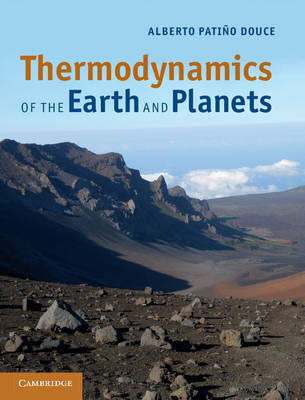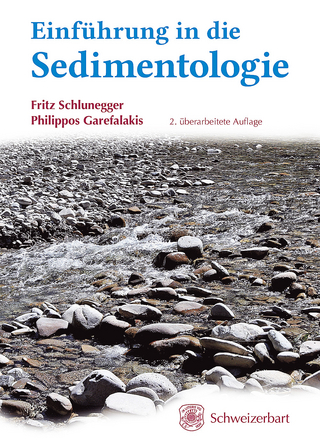
Thermodynamics of the Earth and Planets
Cambridge University Press (Verlag)
978-0-521-89621-4 (ISBN)
This textbook provides an intuitive yet mathematically rigorous introduction to the thermodynamics and thermal physics of planetary processes. It demonstrates how the workings of planetary bodies can be understood in depth by reducing them to fundamental physics and chemistry. The book is based on two courses taught by the author for many years at the University of Georgia. It includes 'Guided Exercise' boxes; end-of-chapter problems (worked solutions provided online); and software boxes (Maple code provided online). As well as being an ideal textbook on planetary thermodynamics for advanced students in the Earth and planetary sciences, it also provides an innovative and quantitative complement to more traditional courses in geological thermodynamics, petrology, chemical oceanography and planetary science. In addition to its use as a textbook, it is also of great interest to researchers looking for a 'one stop' source of concepts and techniques that they can apply to their research problems.
Alberto Patiño Douce is a Professor in the Department of Geology at the University of Georgia, where he has been for almost 20 years. He has very wide research interests, which include the origin of Earth's continents, the nature of the early terrestrial atmosphere, the volatile contents of the Martian mantle and of meteorite parent bodies, the origin of life, foundational issues in classical and non-equilibrium thermodynamics, applications of statistical physics to human societies, and the reasons why human cultures repeatedly ignore the finiteness of natural resources, overreach and self-destroy. His teaching in geology, planetary sciences and thermodynamics at all levels is recognized as being unusually intense, quantitative, energetic, demanding and uncompromising, but despite this he is a frequent recipient of his department's 'Professor of the Year' award, chosen by student vote. His former Ph.D. students are pursuing a wide range of careers in academia, at NASA and in national security. He is an Associate Editor for the journal Lithos and formerly for Mineralogy and Petrology.
1. Energy in planetary processes and the First Law of Thermodynamics; 2. Energy sources in planetary bodies; 3. Energy transfer processes in planetary bodies; 4. The Second Law of Thermodynamics and thermodynamic potentials; 5. Chemical equilibrium: using composition as a thermodynamic variable; 6. Phase equilibrium and phase diagrams; 7. Critical phase transitions; 8. Equations of state for solids and the internal structure of terrestrial planets; 9. Thermodynamics of planetary volatiles; 10. Melting in planetary bodies; 11. Dilute solutions; 12. Non-equilibrium thermodynamics and rates of natural processes; 13. Topics in atmospheric thermodynamics and radiative energy transfer; 14. Thermodynamics of life; References; Index.
| Erscheint lt. Verlag | 25.8.2011 |
|---|---|
| Zusatzinfo | Worked examples or Exercises; 10 Tables, black and white; 50 Halftones, unspecified; 150 Line drawings, unspecified |
| Verlagsort | Cambridge |
| Sprache | englisch |
| Maße | 198 x 254 mm |
| Gewicht | 1670 g |
| Themenwelt | Naturwissenschaften ► Geowissenschaften ► Geologie |
| Naturwissenschaften ► Geowissenschaften ► Geophysik | |
| Naturwissenschaften ► Physik / Astronomie ► Thermodynamik | |
| ISBN-10 | 0-521-89621-5 / 0521896215 |
| ISBN-13 | 978-0-521-89621-4 / 9780521896214 |
| Zustand | Neuware |
| Haben Sie eine Frage zum Produkt? |
aus dem Bereich


